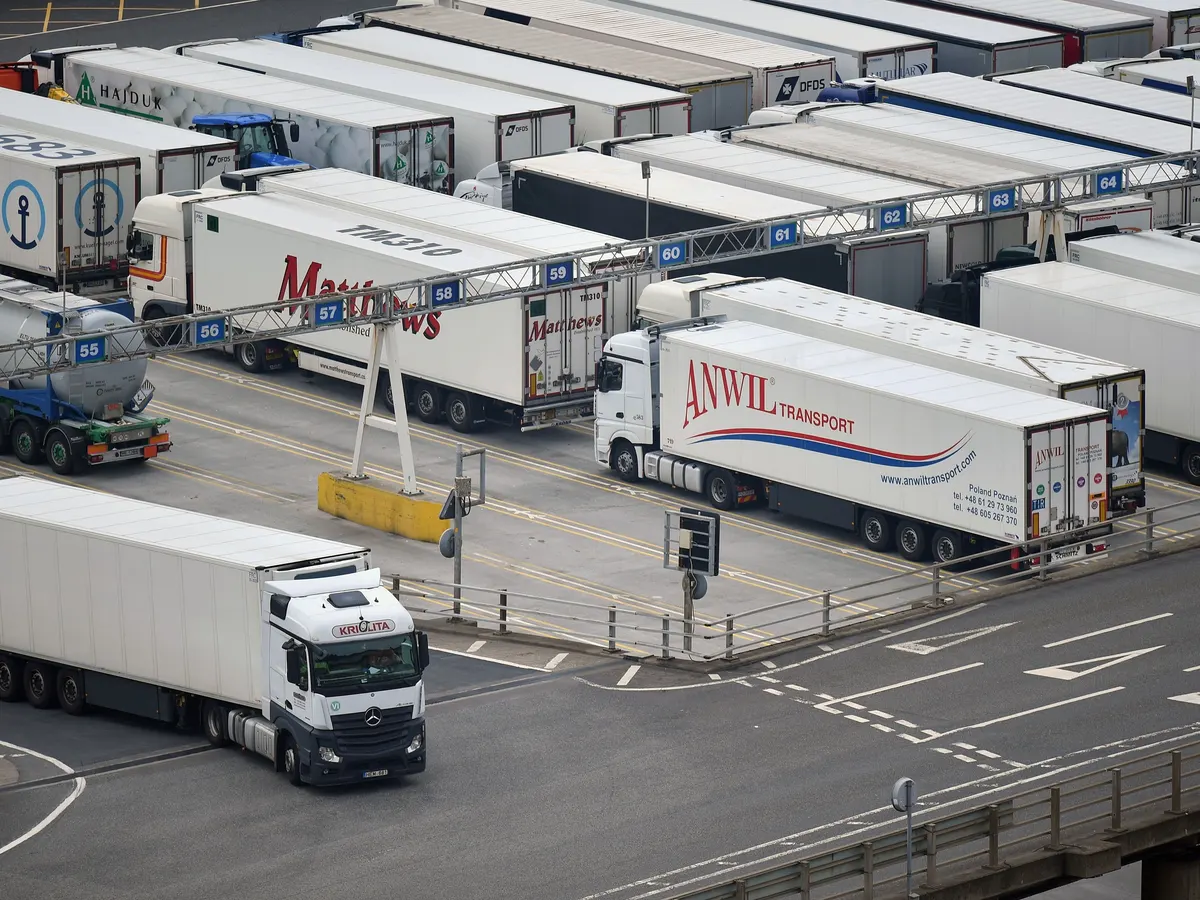UK (Parliament Politic Magazine) – According to a government source, there are concerns that additional bureaucratic procedures could contribute to a rise in inflation. Reports indicate that the implementation of Brexit checks on fresh farm produce entering the UK from the EU has been postponed for the fifth time. This decision to temporarily halt the enforcement of these controls, which have already been imposed on British exports to the EU since January 2021, is expected to be announced very soon, as reported by the Financial Times.
UK Government Struggles to Implement Post-Brexit Food Checks from EU
The decision to delay the checks is aimed at providing the government and EU exporters with additional time to adequately prepare. However, this move has put Rishi Sunak at odds with domestic UK food producers who have consistently argued that it grants an unfair advantage to their continental competitors, as they are subjected to rigorous checks on all fresh food exports to the bloc. Reports indicate that there are apprehensions regarding the potential rise in costs for food imports, which could ultimately lead to increased inflation and burden consumers further.
The decision comes merely days after the government scrapped its intention to mandate manufacturers to affix an alternative safety mark to their products instead of the EU’s CE (Conformité Européenne) label. This move has been met with approval from industry representatives, who warmly welcome the postponement.
Shane Brennan, the Chief Executive of the Cold Chain Federation, stated, “The government has made the right decision to postpone. UK food retailers, hospitality businesses and consumers were in line for major disruption because many EU food-producing businesses supplying into the UK are not ready for the new requirements’’.
He expressed concern regarding the lack of awareness among EU producers, particularly small-scale producers of specialty items like cheese, regarding the newly imposed requirements. This lack of awareness could potentially result in shortages on store shelves.
The Fallout of Brexit: Fresh Food Checks on EU Imports Pushed Further Back
According to an industry insider, the recent actions can be described as a “Treasury purge,” aimed at eliminating any modifications that could potentially disrupt the supply chain. This move is particularly crucial due to the food market’s vulnerability to price hikes in the current economic climate.
Prior to Brexit, exporters enjoyed the convenience of sending chilled and fresh food to the European Union (EU) without the need for any paperwork. This was possible because the United Kingdom (UK) was a member of the single market.
Since the UK’s departure from the EU, fresh and chilled foods, such as sausages or cheese, as well as animal and plant products, including timber and leather, are now subject to sanitary and phytosanitary (SPS) checks. These checks ensure that these goods meet the necessary health and safety standards and can only be exported with a valid health or veterinary certificate.
However, exporters from the EU have been exempt from these additional paperwork requirements. This exemption arises from the British government’s failure to establish new SPS systems or allocate land for SPS parks, which would enable random physical checks to be conducted. To rectify this situation, it is crucial for the British government to promptly address these shortcomings.
Read More: UK Citizens Traveling To Europe To Undergo Fingerprint and Face Scans
The Fallout of Brexit: Fresh Food Checks on EU Imports Pushed Further Back
The Brexit cliff-edge in 2021 caused significant turmoil for British exporters of fish and other perishable goods. The lack of customs agents and veterinary staff to verify compliance with EU standards further exacerbated the chaos.
However, it is worth noting that in the UK, Brexit checks were postponed multiple times. In 2020, and on two separate occasions in 2021, the then Brexit opportunities minister, Jacob Rees-Mogg, decided to delay these checks.
In April, the government made an announcement regarding the phased implementation of checks, which were scheduled to commence on 31st October. Additional checks were also planned for the years 2023 and 2024.
The checks scheduled for October were intended to include the submission of paperwork known as “pre-certification.” This paperwork would serve as a notification to the authorities regarding the arrival of food products that must comply with public health requirements.
It is anticipated that these checks will be postponed until the end of January, coinciding with the implementation of physical SPS checks. According to government insiders, additional information regarding the regulations governing food imports will be released in the near future, although the actual implementation will be delayed.


